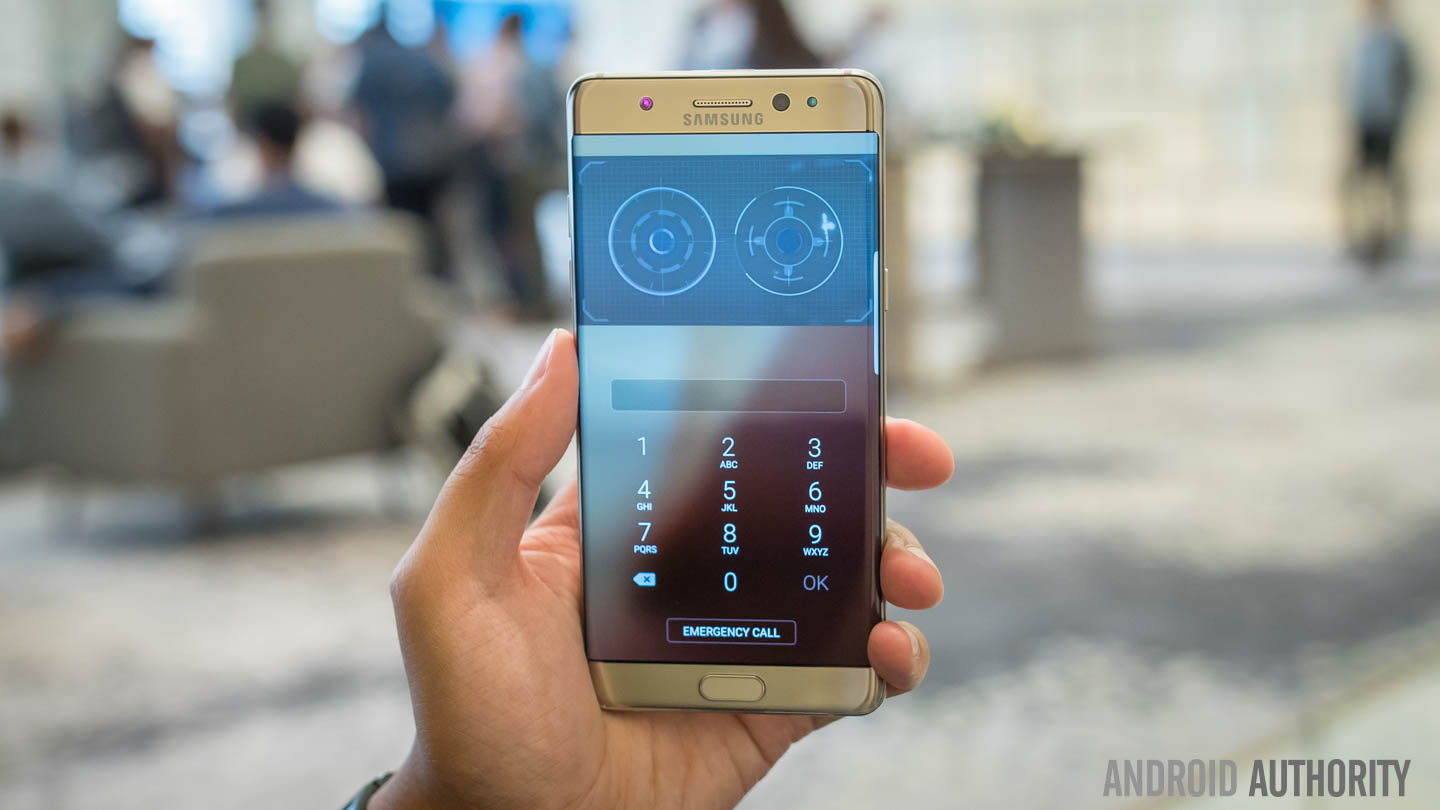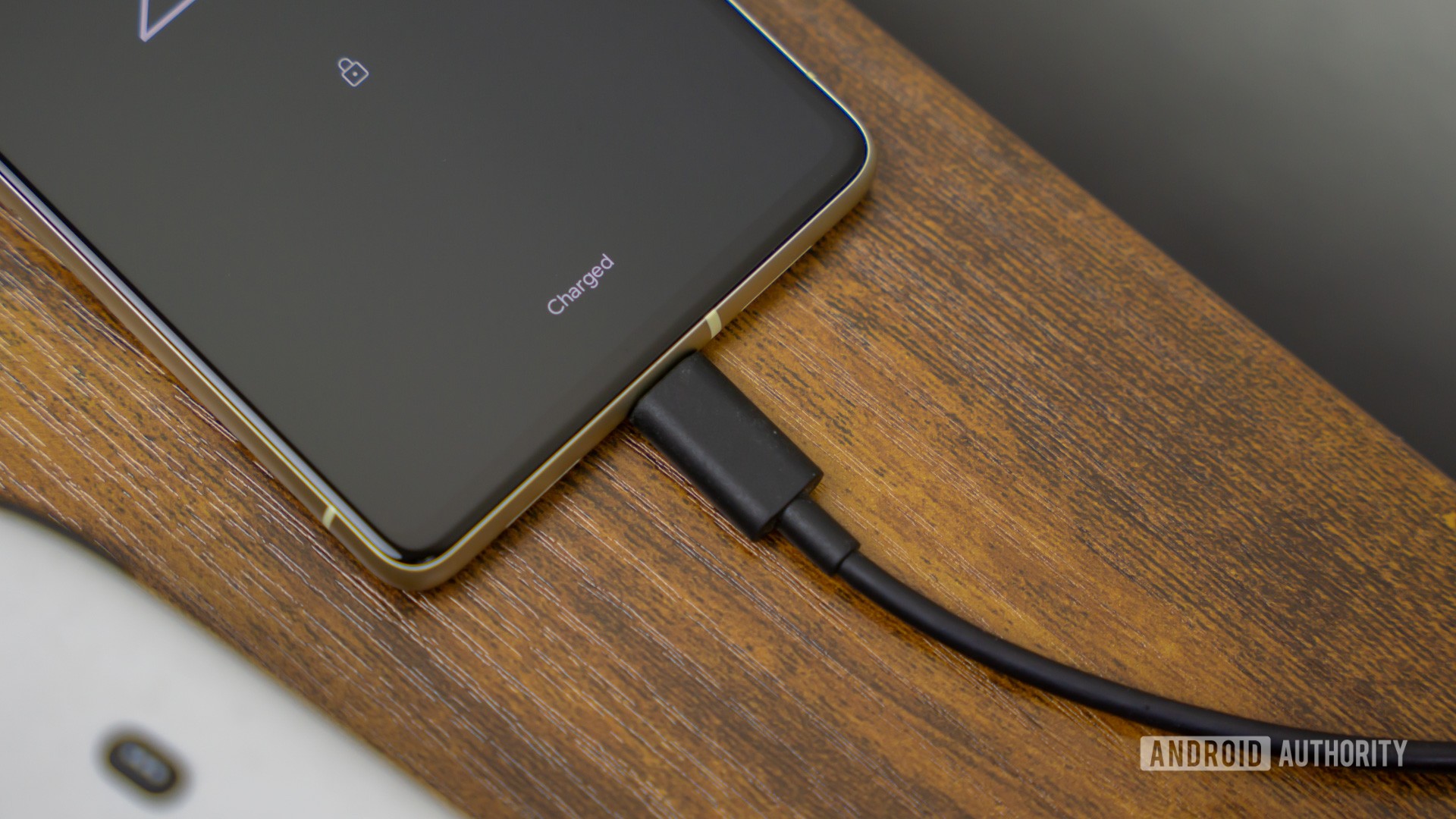Affiliate links on Android Authority may earn us a commission. Learn more.
Galaxy S10 may ditch iris scanner for in-display fingerprint and 3D sensor tech

- Samsung is tipped to drop the iris scanner on the upcoming Samsung Galaxy S10.
- The device is instead expected to get both an in-display fingerprint sensor and 3D sensor.
- The iris scanner has been around on flagship Samsung devices since the Galaxy Note 7.
Samsung will reportedly ditch the iris scanner on the rumored Galaxy S10, with the manufacturer instead tipped to include an in-display fingerprint sensor and a 3D sensor on the phone. This news comes from The Bell (link in Korean), citing the security parts industry, which suggests Samsung has not ordered a sample iris scanner for the Galaxy S10 prototype it has in development.
The Bell reaffirmed that the device will be codenamed “Beyond” and says the size of the display for both the Galaxy S10 and the Galaxy S10 Plus has been confirmed. The display of the Galaxy S10 is said to be 5.8 inches, while the Galaxy S10 Plus is said to be 6.3 inches.
If this is true, the standard model would be the same size as the Samsung Galaxy S9, although the Galaxy S10 Plus will be 0.1 inches larger than the Galaxy S9 Plus.
Should Samsung feature an in-display fingerprint sensor and a 3D sensor on the device, there would be little need for an iris scanner too. Despite being secure, iris scanners can be inconsistent in low light or if you wear glasses. Meanwhile, Apple’s 3D sensor-based “Face ID” is considered to be highly secure and should work regardless of the lighting conditions. With both in-display and 3D sensor based unlock methods, an iris scanner might be an unnecessary expense for the next Galaxy S model.

It is still early days in the development of the Samsung Galaxy S10 and just because Samsung hasn’t yet ordered parts doesn’t mean it never will. The article states that if Samsung has any issues with the planned in-display sensor or the 3D sensor, then there is a chance that it could reverse its decision and stick with the iris scanner.
However, it makes a lot of sense that Samsung would do all it can to avoid this eventuality. The Galaxy S10 will be the tenth device in the Galaxy S series so Samsung will likely want to make it a special one. Using the same iris scanning technology that has been found in Samsung devices since the ill-fated Galaxy Note 7 isn’t a great way to make an impact.
Next up: Samsung Galaxy S10: What we know about Samsung’s next big thing